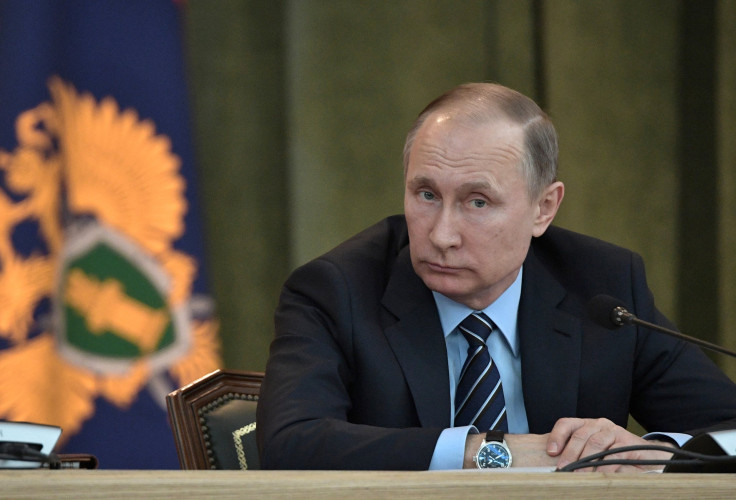Social Media Surveillance In Russia: Kremlin Creates Task Force To Monitor The Internet

The Russian National Guard has created a cyber intelligence task force to monitor social media with the goal of weeding out “extremist content,” the Moscow Times reported Thursday. The task force is part of Russia’s anti-terrorism efforts that were intensified last year, when the Kremlin reported it saw a 86 percent rise in online extremism in the first half of 2016.
But not only has Russia has been criticized for publishing data that’s been manipulated to boost the Kremlin's own agenda, but the country has also been roundly condemned for curtailing free speech. Last year, the Associated Press reported Russian nationals were imprisoned for posting criticism online of the Kremlin and Russian President Vladimir Putin. In 2015, at least 54 people were imprisoned for hate speech.
Read: Who Is Vladimir Putin? Kremlin Leader’s Secret Love Life, Family And Political History
Part of the reason for the discrepancy in how extremism and mere criticism of government comes from a 2002 Russian law. The law originally banned people from promoting "exclusivity, superiority or inferiority of citizens,” but in 2007, it was extended to include nonviolent actors.
Then, in 2016, Russia’s anti-terrorism laws expanded again after ISIS shot down a Russian passenger plane over Egypt. The law greatly broadened the government’s power, which can now legally unlock encrypted traffic and require communications providers to make user data accessible to security services.
Read: Russia Relations With US Won’t Improve If Sanctions Continue, Kremlin Warns
But critics were not convinced the law had anything to do with terrorism at all. Its “real purpose is to shield the Putin regime from internal dissent and unrest,” Paul Roderick Gregory wrote in the Economist last August.
In addition, punishments for people who have violated those laws have become harsher.
"These cases are very arbitrary because there are lots more people out there who have done the same thing. Such enforcement of the law does not address or combat radical activities," said Alexander Verkhovsky, director of the Sova group, which is based in Moscow and studies human rights in Russia. "No one knows where the red line is: It's like roulette."
© Copyright IBTimes 2025. All rights reserved.






















